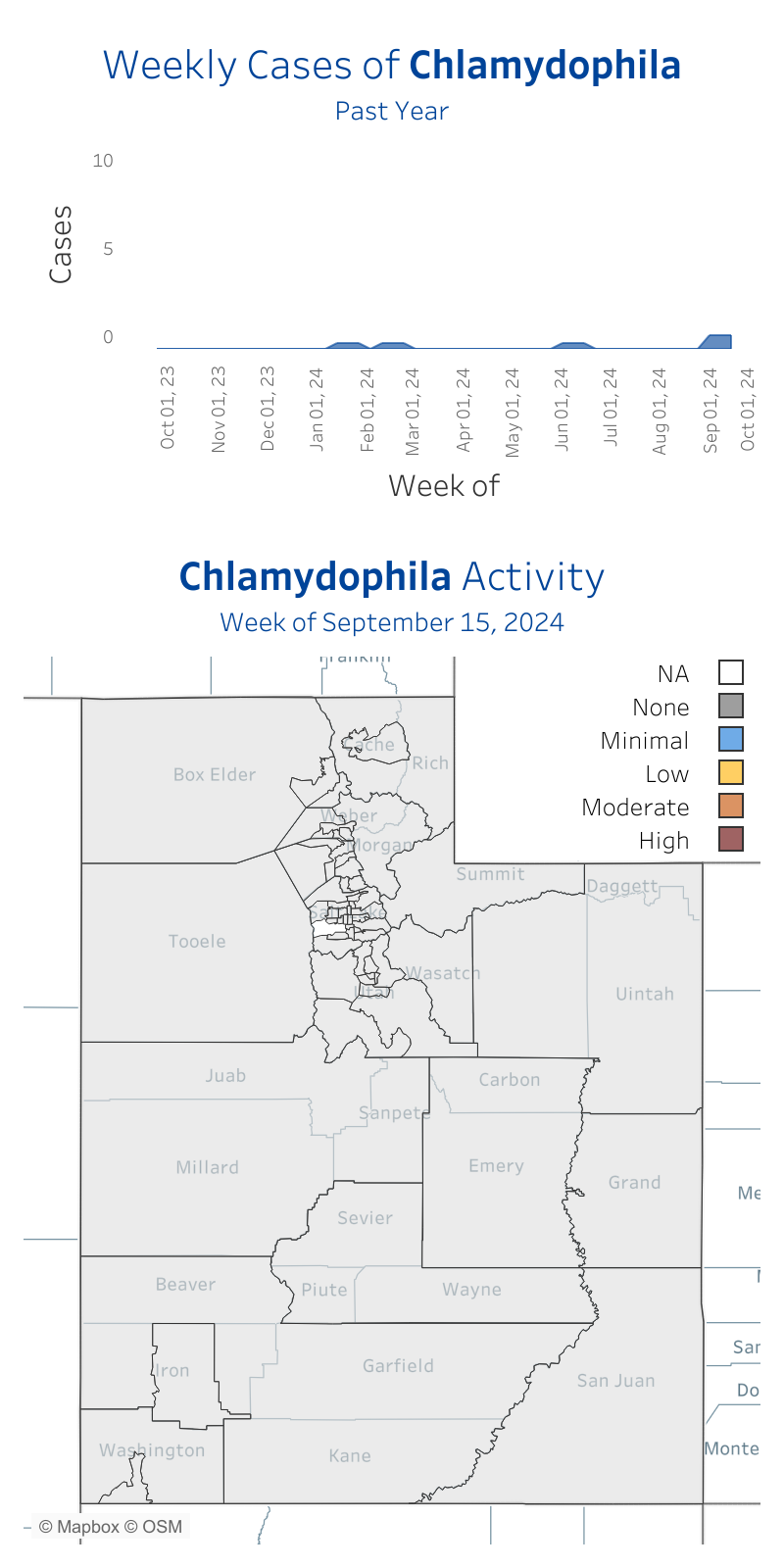Germ Profile
Also Known As: Chlamydia, Atypical Pneumonia, C. Pneumoniae
Germ Type: Bacteria
Season: Spring, summer, fall, winter
Chlamydophila pneumoniae can cause coughing and a sore throat. Children between the ages of 5 and 15 are most often affected, and while some will have no (or very few) symptoms, others will develop pneumonia. The cough from chlamydophila pneumoniae infection can be long-lasting — between 2 to 6 weeks.
Seasonality
Chlamydophila pneumoniae infections are seen year-round.

Signs and Symptoms
A slow-developing cough is the hallmark symptom of Chlamydophila pneumoniae infection. Many children will have a sore throat for a week or so before they develop a cough. Infection can trigger an asthma flare-up in a person with asthma. It also sometimes leads to complications like ear infection and pneumonia. The cough from Chlamydophila pneumonia can be unusually prolonged – as long as 2 to 6 weeks – and infections often recur.
How It's Spread
The Chlamydophila pneumoniae bacteria spreads person-to-person through coughs, sneezes, laughs – anything that produces a spray that can be breathed in by someone else..
Diagnosis and Treatment
Providers usually diagnose a Chlamydophila pneumoniae infection by taking a medical history and doing a physical exam. The provider may also choose to verify the diagnosis by testing a sample of mucus from the mouth or nose, or by ordering a blood test.
Treatment for Chlamydophila pneumoniae depends on the symptoms and complications. If symptoms are mild, treatment may just mean managing the symptoms until the infection goes away on its own. However, pneumonia may require treatment with antibiotics.
What can I do today?
1) Practice prevention and stop the spread:
- Wash your hands often and well, and have children do the same.
- Avoid close contact with people who are sick, and if you’re sick, stay home from school or work.
- Cover your sneezes and coughs.
- Use a tissue once, then throw it away and wash your hands.
2) Pay attention:
- When Chlamydophila pneumoniae is going around, pay attention to any symptoms your child may have. Most infections are mild, but be on the lookout for more serious symptoms.
3) Call your child’s doctor if you notice:
- Wheezing (a whistling sound when breathing in or out).
- Severe, long-lasting cough.
- Fast breathing (more than 40 times a minute) or very difficult breathing (retractions, or using the stomach muscles when breathing).
- Signs of dehydration (dry mouth and eyes, little urine, low energy).
- Fever higher than 100.2°F in an infant 3 months or younger.
- Fever lasting longer than 3 days.
- Any other severe symptoms or symptoms that last longer than 7 days.
Disclaimer: The contents of this website are not intended to be a substitute for professional medical advice, diagnosis, or treatment.